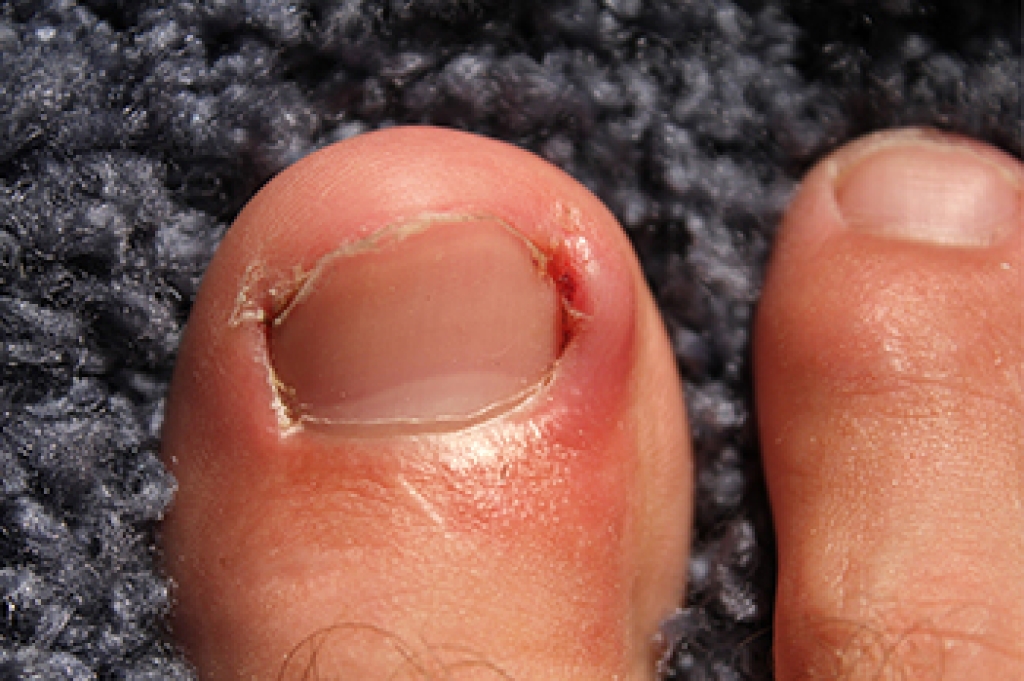
Many individuals are affected with the foot condition known as ingrown toenails. This condition occurs when the side of the nail grows into the skin surrounding the toenail. As a result, the skin will grow overtop of the nail. This might cause pain. Many people affected with ingrown toenails are curious about how they might go about cutting an ingrown toenail. Generally, it is best to seek the help of a podiatrist to cut an ingrown toenail because doing so by oneself can potentially be damaging. If someone cuts the nail too short, they may be putting themselves at an increased risk of encouraging another ingrown toenail to develop. Also, when an inexperienced person attempts to cut an ingrown toenail, they might be increasing their susceptibility to infection. Under the care of a podiatrist, a patient can receive the care that they need to treat the underlying problem. If you have an ingrown toenail, contact a podiatrist today for an appointment.
Ingrown toenails can become painful if they are not treated properly. For more information about ingrown toenails, contact one of our podiatrists of Spartan Podiatry. Our doctors can provide the care you need to keep you pain-free and on your feet.
Ingrown Toenails
Ingrown toenails occur when a toenail grows sideways into the bed of the nail, causing pain, swelling, and possibly infection.
Causes
- Bacterial infections
- Improper nail cutting such as cutting it too short or not straight across
- Trauma to the toe, such as stubbing, which causes the nail to grow back irregularly
- Ill-fitting shoes that bunch the toes too close together
- Genetic predisposition
Prevention
Because ingrown toenails are not something found outside of shoe-wearing cultures, going barefoot as often as possible will decrease the likeliness of developing ingrown toenails. Wearing proper fitting shoes and using proper cutting techniques will also help decrease your risk of developing ingrown toenails.
Treatment
Ingrown toenails are a very treatable foot condition. In minor cases, soaking the affected area in salt or antibacterial soaps will not only help with the ingrown nail itself, but also help prevent any infections from occurring. In more severe cases, surgery is an option. In either case, speaking to your podiatrist about this condition will help you get a better understanding of specific treatment options that are right for you.
If you have any questions, please feel free to contact our offices located in Battle Creek and Marshall, MI . We offer the newest diagnostic and treatment technologies for all your foot care needs.
